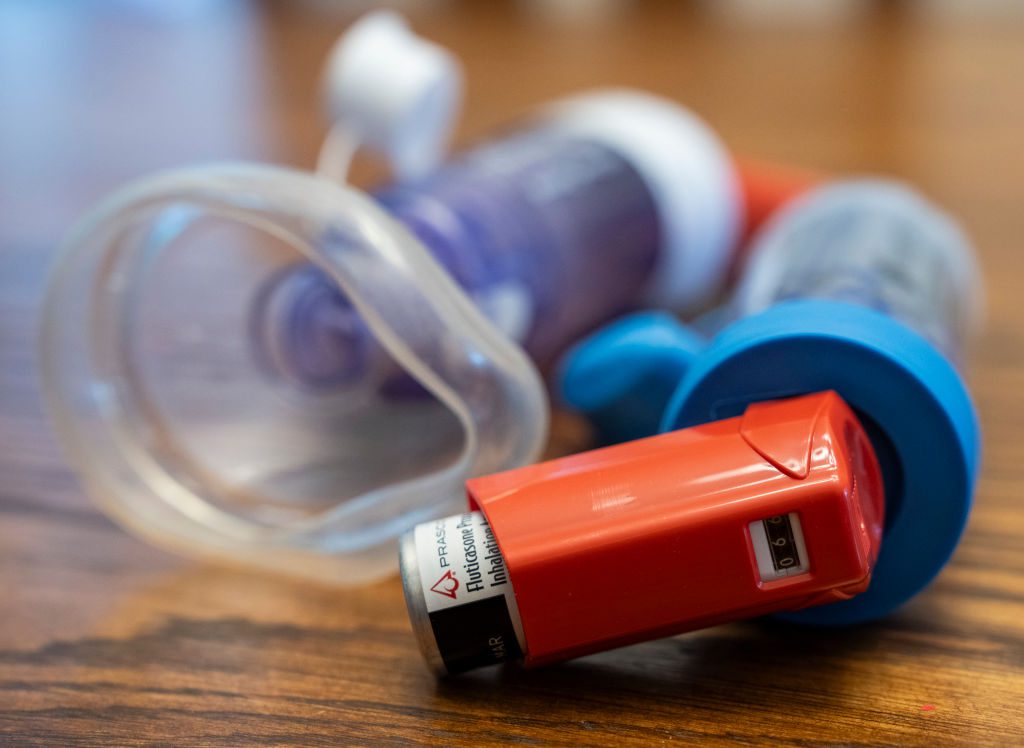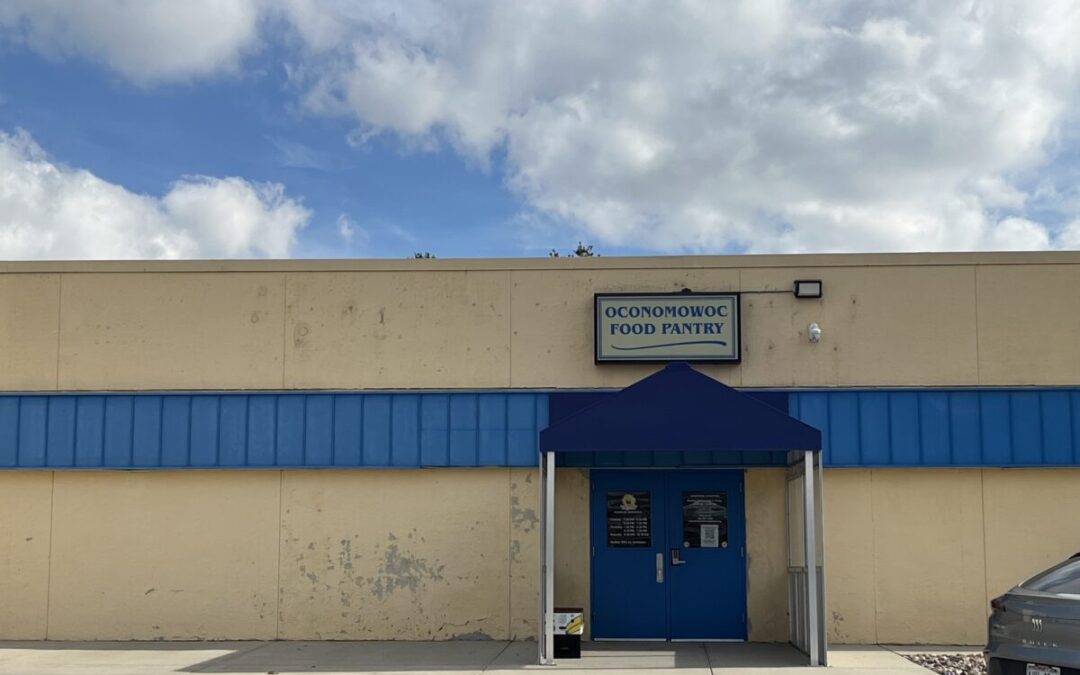
AstraZeneca, Boehringer Ingelheim, and GlaxoSmithKline all agreed to cap the price of asthma inhalers earlier this year following an investigation by a Democratic-led Senate Committee. (Photo by Kayla Bartkowski/The Boston Globe via Getty Images)
AstraZeneca, Boehringer Ingelheim, and GlaxoSmithKline all agreed to cap the price of asthma inhalers earlier this year following an investigation by a Democratic-led Senate Committee.
Several major drugmakers have capped the price of asthma inhalers at $35 per month, following growing public outrage over the cost and pressure from Democratic lawmakers.
AstraZeneca, Boehringer Ingelheim, and GlaxoSmithKline all agreed to cap the cost of inhalers earlier this year. AstraZeneca and Boehringer Ingelheim’s caps went into effect on June 1, while GlaxoSmithKline’s cap is set to take effect by Jan. 1.
This move from inhaler manufacturers is similar to steps taken by insulin manufacturers last year to cap the cost of insulin at $35 per month following the passage of the Inflation Reduction Act, which capped monthly insulin costs for seniors on Medicare.
Like insulin, the cost of inhalers in the US is significantly higher than other wealthy nations. An investigation conducted by the Democratic-led Senate Committee on Health, Education, Labor and Pensions noted that AstraZeneca previously charged $645 in the US for the same inhaler it charges $49 for in the United Kingdom. Teva Pharmaceuticals, another major inhaler manufacturer, currently charges $286 in the US for an inhaler that costs $9 in Germany.
Both the uninsured and those with private insurance are eligible for the price cap, according to an AstraZeneca spokesperson who spoke with NBC News in May. A spokesperson with Boehringer Ingelheim said the price cap is automatically applied at the pharmacy counter for the majority of eligible patients with commercial insurance. For the uninsured or those whose pharmacies aren’t participating, they can visit the company’s website and enroll in a copay card that will reduce the out-of-pocket cost to $35.
Due to federal restrictions, those insured through Medicare and Medicaid aren’t eligible for any of the price caps.
More than 27 million people in the United States have asthma, according to the Asthma and Allergy Foundation of America (AAFA). This includes five million children. According to the most recent data from the Centers for Disease Control and Prevention, 498,228 adults in Wisconsin have asthma, or 10.8% of the adult population.
“Americans can breathe easier knowing they can afford the prescriptions they need,” Protect Our Care Chair Leslie Dach said in a statement earlier this year. “The outrageous cost of inhalers exemplifies why we need the Inflation Reduction Act and other measures to rein in drug prices for hardworking families. While Democrats have been laser-focused on lowering costs, Republicans are proposing to repeal the Inflation Reduction Act and roll back all of this progress in order to line the pockets of big drug companies.”
“After years of drugmakers hiking the cost of inhalers and making them unaffordable for patients, people are finally getting some relief,” Dach added. “We must build on this momentum and continue the work of making life-saving medications affordable for everyone in this country.”
Dr. Alan Baptist, the division chief of allergy and immunology in the department of internal medicine at Henry Ford Health in Detroit, also told NBC News that lack of access to inhalers and high prices further exacerbate racial disparities seen in asthma care.
According to the American Lung Association, in 2018, Black people were 42% more likely than white people to have asthma. This is due to a host of social determinants and structural issues, such as limited access to quality health care and resources due to lower socioeconomic status.
“When you look at the outcomes, the adverse events, it’s so much worse,” Baptist said. According to the Office of Minority Health, Black children were 4.5 times more likely to be hospitalized for asthma than white children and 7.6 times more likely to die from asthma in 2019.
The Asthma and Allergy Foundation of America reacted to the news of these price caps earlier this year, saying the moves were a “step toward improving access to essential asthma medicine.”
“The announced price cap…demonstrates that the voice of the asthma patient community is being heard,” Kenneth Mendez, president and CEO of AAFA, said in a statement.
“Access to asthma medications can save lives, reduce hospitalizations, and lower the more than $82 billion in annual costs to the US economy from this chronic disease,” the organization added.

How to support Wisconsin residents as SNAP funding disappears
As the nation remains in a government shutdown, food assistance programs in Wisconsin are feeling the effects. FoodShare, Wisconsin’s federal...

October is Breast Cancer Awareness Month. Here’s how you can help in Wisconsin
It's Breast Cancer Awareness Month. Here's how you can help fight for a cure throughout Wisconsin. October is globally recognized as Breast Cancer...

What is Halle Berry doing for Wisconsin women?
The actor and menopause advocate is speaking in support of a bipartisan bill to get better resources to doctors and patients. She did the same last...

WI residents could be missing out on dual-plan health benefits
By Judith Ruiz-Branch Fall open enrollment starts Wednesday for Wisconsinites who are dual eligible for both Medicaid and Medicare, and...




